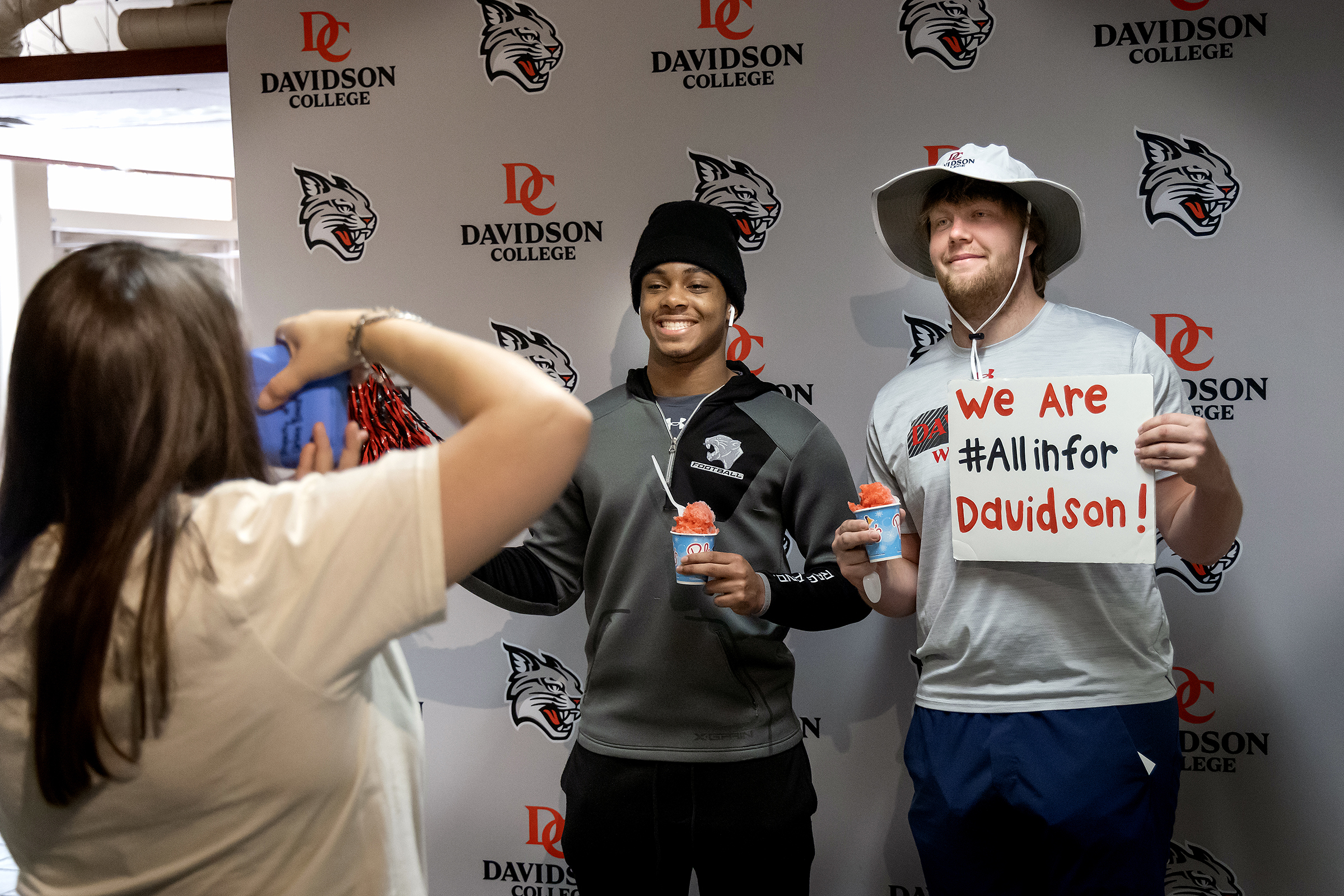Beyond Science: Students Awarded Vann Fellowships in Ethics
Akanksha Das '16 and Max Feinstein '16 have been selected as this year's Vann Fellows in Biomedical Ethics Research, and will spend this summer completing research projects at the Mayo Clinic in Rochester, Minn. Made possible through a generous gift from Jim Vann '50 and Lee Stanton Vann, the Vann Fellowships allow two Davidson students per year to spend the summer learning from physicians and researchers within the Mayo Clinic Program in Professionalism and Ethics. The fellowship also includes a stipend of $5,000.
Feinstein, a biology major and neuroscience minor from Houston, Texas, said he's excited for this unique learning opportunity. "This is a chance to experience a side of medicine that goes beyond the patient and scientific aspects," he said. "Ethics research takes into account how new technology, legislation, human nature and other often-ignored factors affect medical practices."
Das, a psychology major from New Delhi, India, said her interest in studying medical ethics began last summer, when she interned at Broughton Hospital in Morganton, N.C., through a program sponsored by the psychology department. "Last summer I learned about the many ethical decisions that psychologists must make on a daily basis," she explained. "It will be fascinating to see how doctors and researchers at Mayo Clinic are faced with similar ethical dilemmas."
Feinstein and Das will be assigned to a specific research team at the Mayo Clinic. Feinstein, who has completed behavioral pharmacology research at Davidson related to drug addiction, said he will likely be placed with a project related to genome sequencing.
"Genome sequencing allows doctors to discern their patient's predisposition to certain conditions based on their genes," Feinstein explained. "Ethical questions arise when doctors decide how to disclose this information to patients, since the information may affect the way patients respond to treatment."
He continued, "If a patient knows that she is predisposed to cocaine abuse due to her genetic information, she may be less receptive to cognitive behavioral therapy that would be highly effective otherwise."
Das is interested in studying the ethics of organ transplants. "Some very new research suggests that recipients of organ transplants recover at a slower rate if their donating relative exhibited hesitation or reluctance before surgery," she said.
Das stressed the importance of ethical research in medicine and other disciplines. "Understanding ethics is vital," she said. "Anyone in a position of power has to consider the ethical complications of what they are doing."
Feinstein emphasized the value of providing access to ethics research in the liberal arts curriculum. "I think the hallmark of the liberal arts is integrating many disciplines," he said. "As Vann Fellows, we will be tackling issues of science, history, religion, sociology and more.
"At Davidson we embrace this model of interdisciplinary learning, because if we want to become innovators rather than technicians, we need to be able to transform and apply information from various aspects of life."



